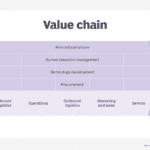Benefits of Dropshipping over Traditional Direct Selling or Retailing
 The rise of e-commerce has brought about new business models, with dropshipping gaining popularity as an alternative to traditional direct selling or retailing.
The rise of e-commerce has brought about new business models, with dropshipping gaining popularity as an alternative to traditional direct selling or retailing.
We compare the benefits of dropshipping against traditional direct selling or retailing, highlighting factors such as cost, inventory management, scalability, and flexibility.
Cost Efficiency in dropshipping
Dropshipping offers significant cost advantages compared to traditional direct selling or retailing. With drop shipping, the seller does not need to invest in inventory upfront. Instead, products are shipped directly from the supplier to the customer.
This eliminates the need for warehouse space, inventory management, and associated costs such as storage, packaging, and shipping. As a result, dropshipping allows entrepreneurs to start their businesses with minimal upfront investment and reduces financial risks.
Inventory Management and Risk Mitigation
In traditional direct selling or retailing, managing inventory can be challenging and costly. Overstocking or understocking products can result in financial losses.
With drop shipping, inventory management is handled by the supplier. Sellers only need to focus on marketing and driving sales. This eliminates the risk of holding excess inventory or dealing with unsold products, reducing operational and financial risks.
Scalability and Flexibility
Dropshipping offers greater scalability and flexibility compared to traditional direct selling or retailing. With drop shipping, sellers can quickly expand their product offerings without the need for additional physical space or inventory.
Sellers can easily add new products or test different niches to identify profitable opportunities. Additionally, dropshipping allows entrepreneurs to operate their businesses from anywhere with an internet connection, providing flexibility and the ability to work remotely.
Reduced Time and Effort
Compared to traditional direct selling or retailing, dropshipping requires less time and effort in terms of fulfillment and order processing. As the supplier handles shipping and logistics, sellers can focus on marketing, customer service, and growing their businesses.
This frees up time and resources to invest in areas that drive revenue and customer satisfaction.
Dropshipping offers numerous advantages over traditional direct selling or retailing, including cost efficiency, reduced inventory management responsibilities, scalability, flexibility, and time savings.
These benefits make dropshipping an appealing option for entrepreneurs looking to start an e-commerce business with low upfront costs and minimal operational complexities.
However, it’s essential for entrepreneurs to carefully evaluate their business goals and choose the model that aligns best with their specific needs and circumstances.




This Post Has 0 Comments